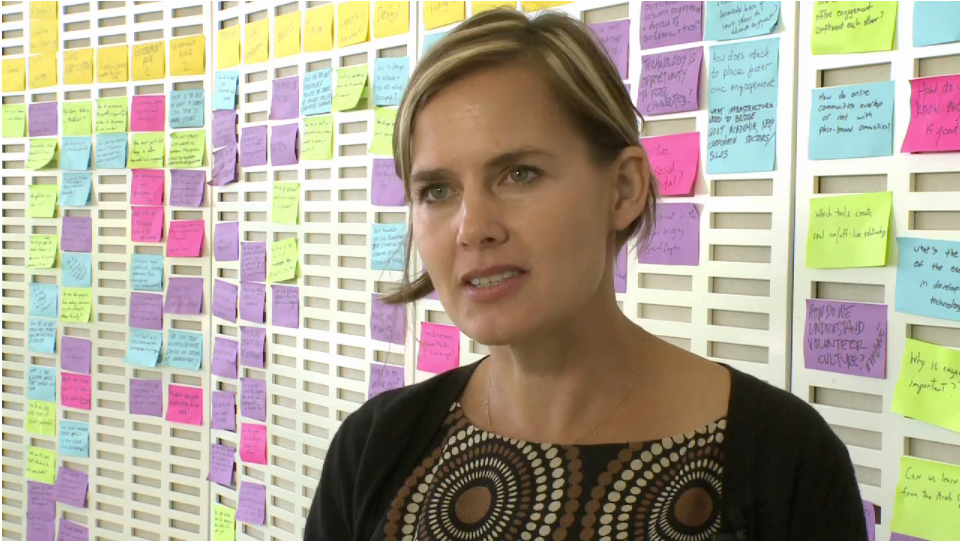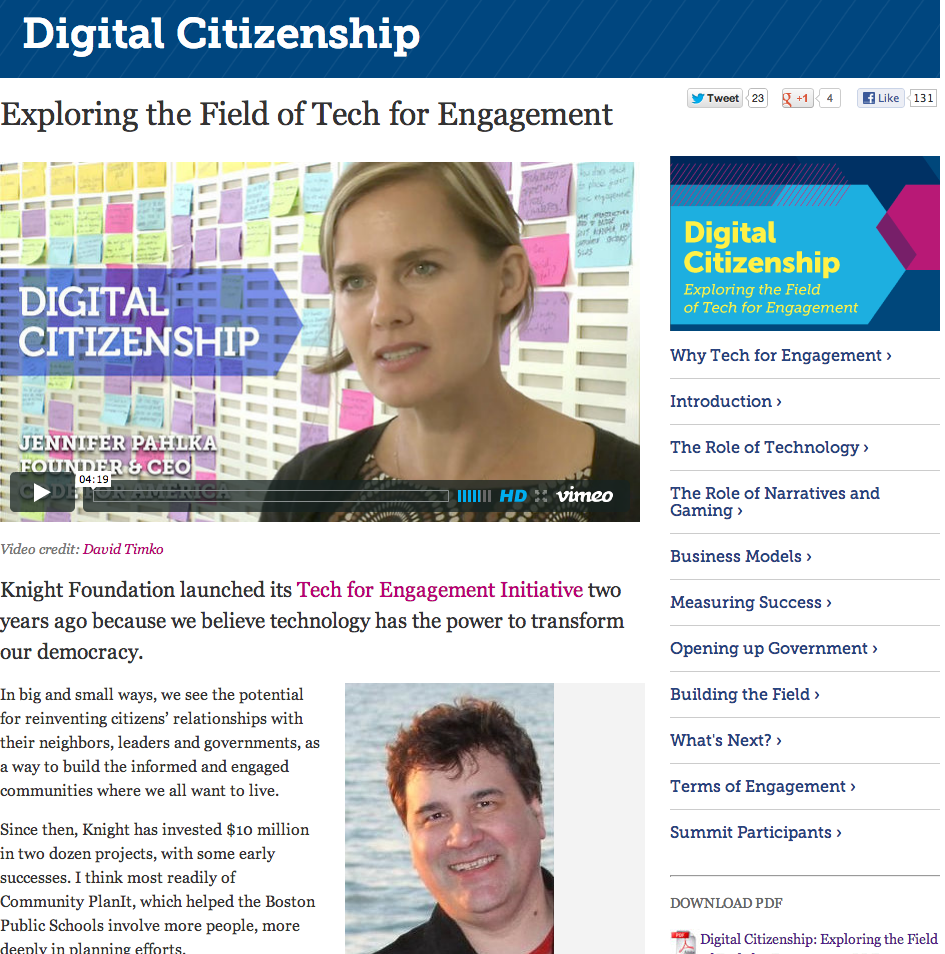Knight Foundation launched its Tech for Engagement Initiative two years ago because we believe technology has the power to transform our democracy.
In big and small ways, we see the potential for reinventing citizens’ relationships with their neighbors, leaders and governments, as a way to build the informed and engaged communities where we all want to live.
Since then, Knight has invested $10 million in two dozen projects, with some early successes. I think most readily of Community PlanIt, which helped the Boston Public Schools involve more people, more deeply in planning efforts.
Two years ago, the district’s town hall meetings drew 100 people. Earlier this summer, some 500 people participated through Community PlanIt, navigating challenges and responding to questions like: “If you were a headmaster of a turnaround school, what would you change?” Their 5,000 comments helped inform the way school quality is measured.
These and other platforms offer a glimpse of what is coming. However, we are nowhere close to realizing the full potential of technology for engagement. Many projects have a limited impact and uncertain duration. Others make government more efficient, yet not more effective at building community and drawing in residents as part of the solution.
In fact, we will only begin to realize technology’s potential when we use this kind of engagement to not just fix potholes, as useful as that is, but to bring people together to tackle the major social problems and issues of our times.
So in June, Knight, the MIT Media Lab and the Berkman Center for Internet and Society convened 70 leading thinkers on technology and community life to draw a map of the field, build a network and seek a way to push the field forward. We stuck to an “unconference” format, where participants in small breakout sessions debated business models and metrics, the importance of hackathons and data sets, and much more.
In those and other conversations, we’ve determined where Knight’s funding can have the most impact going forward:
• Deepening Engagement: Theorists often talk about moving people up the rungs of the engagement ladder. How do we move people from say, donating money to actually organizing the building of a playground? Or, from attending a zoning meeting to organizing with neighbors to advocate for a well-reasoned position? We’re looking for ways technology can bring people together to make a difference in communities, through developing deeper neighbor-to-neighbor connections, fostering collective dialogue or making it easier for residents and leaders to co-create solutions. These shifts are fundamental to the more meaningful involvement that leads to consensus building and the types of solutions that can transform communities.
• Opening up government: Tim O’Reilly and Code for America founder Jennifer Pahlka say it best when they talk about government as a platform that uses the principles of the Web and technology to reframe the function of government, to make it less of a service provider and more of a “platform for citizens to help themselves and help others,” as Pahlka said. Code for America has made it part of its mission, and we are interested in other ideas to help make it happen.
• Infrastructure for the field: The field right now is creative and skilled but small. Many of the people we gathered in Boston knew of each other’s work but had not met. What kind of gatherings, on or offline, could move the field forward? Knight will help in part by hosting another summit in 2013. At the heart of the problem is the fact that we need more technologists with a passion for civic life, and ways to bring them together with social change leaders so that people and communities are at the center of projects from the beginning. We’re looking for more ways to do that.
The report that follows, written by author Charles Tsai, is an exploration of these and other key topics that emerged at the Technology for Engagement Summit. It is meant as a starting point for conversations that are taking place in the early days of an emerging field. Many of the answers rest with people like you, the creatives, scholars, community leaders and developers who believe technology can help reinvent citizenship. We look forward to working with you to unlock the creativity and passion of people to come together around the causes they care so much about.

